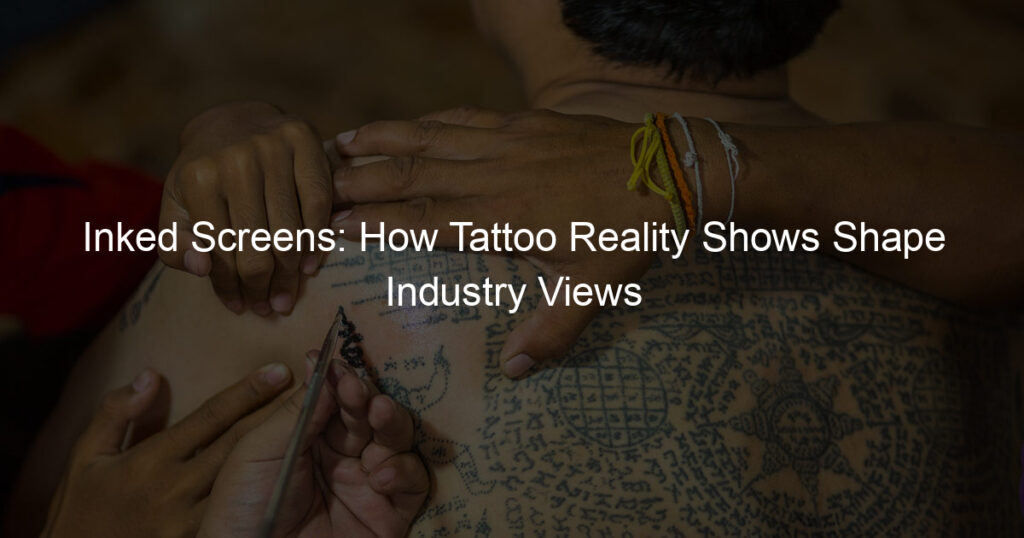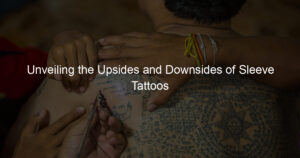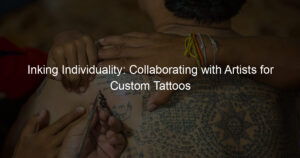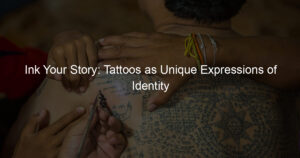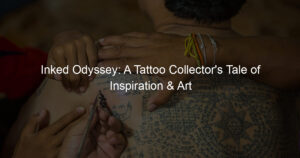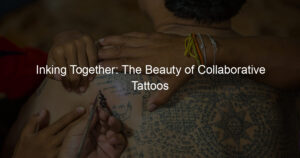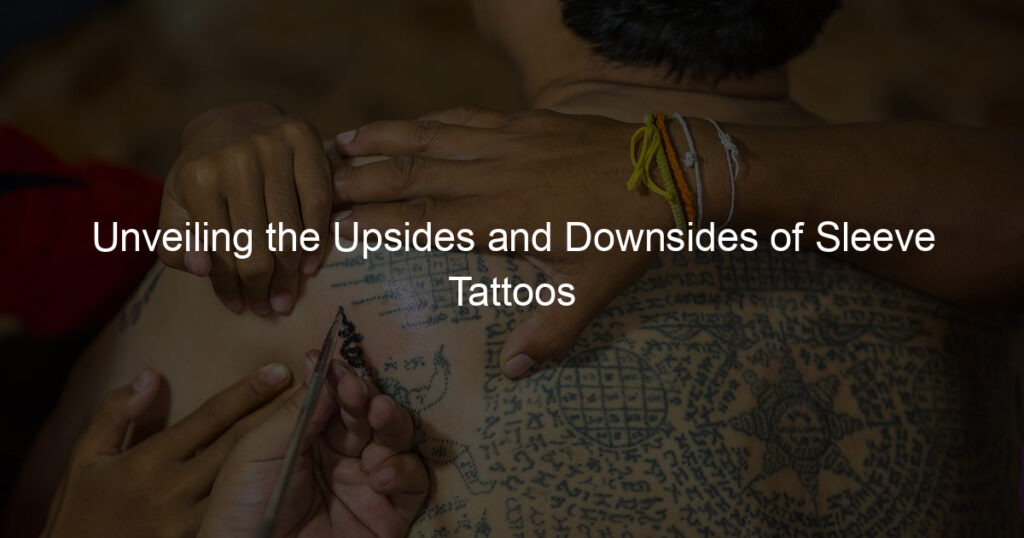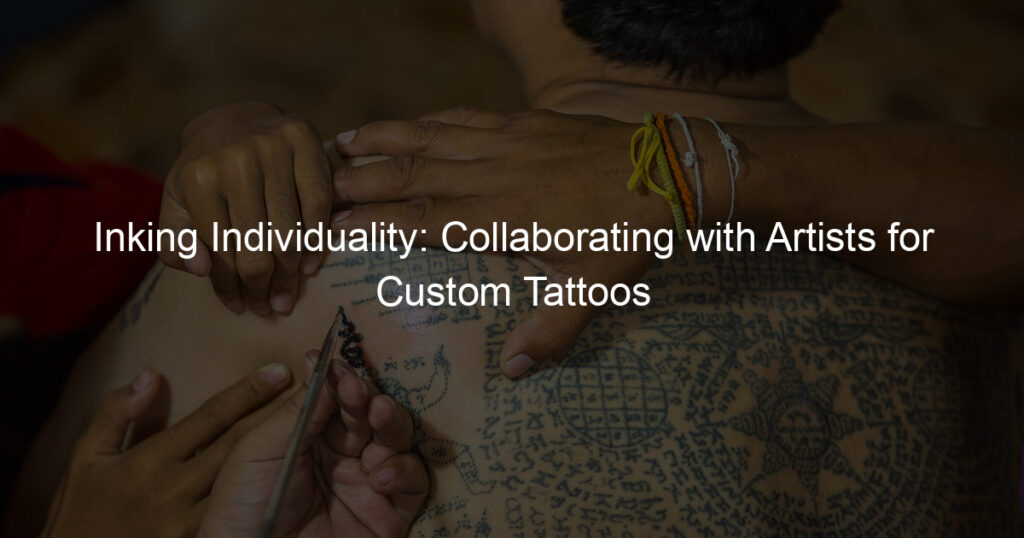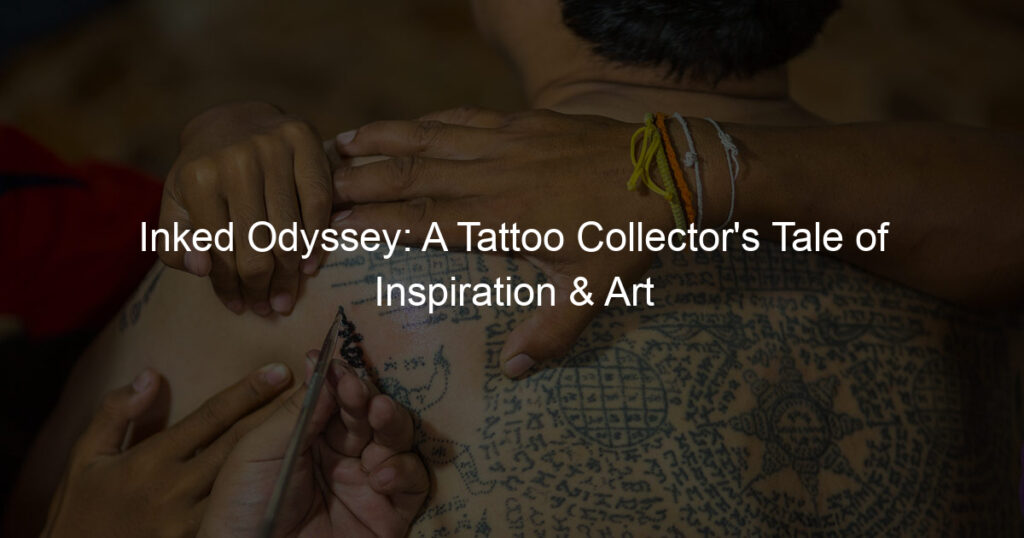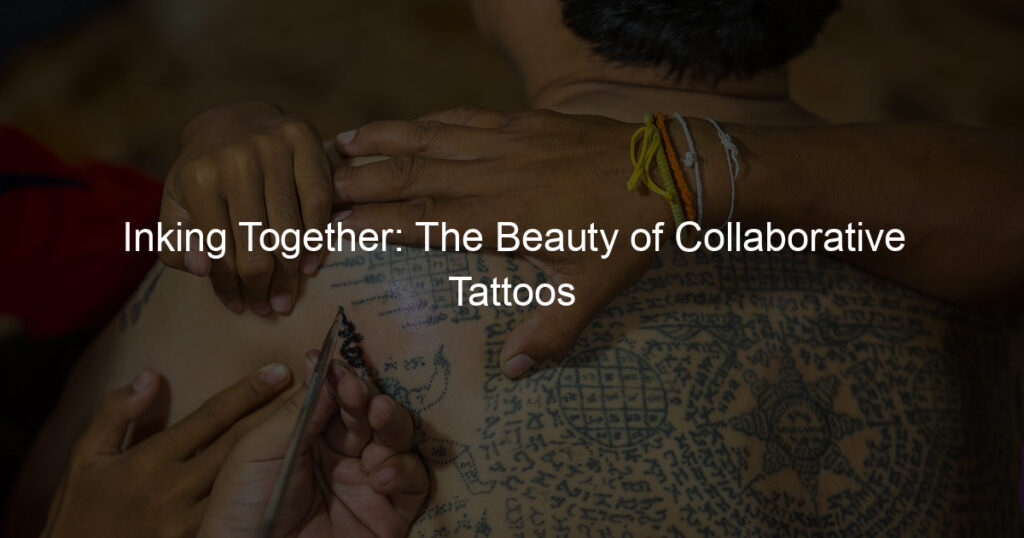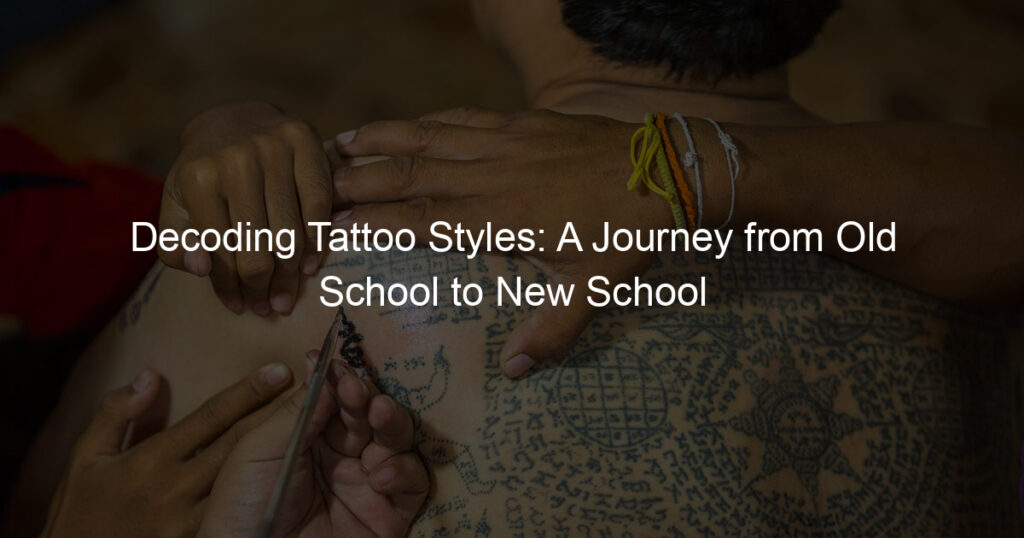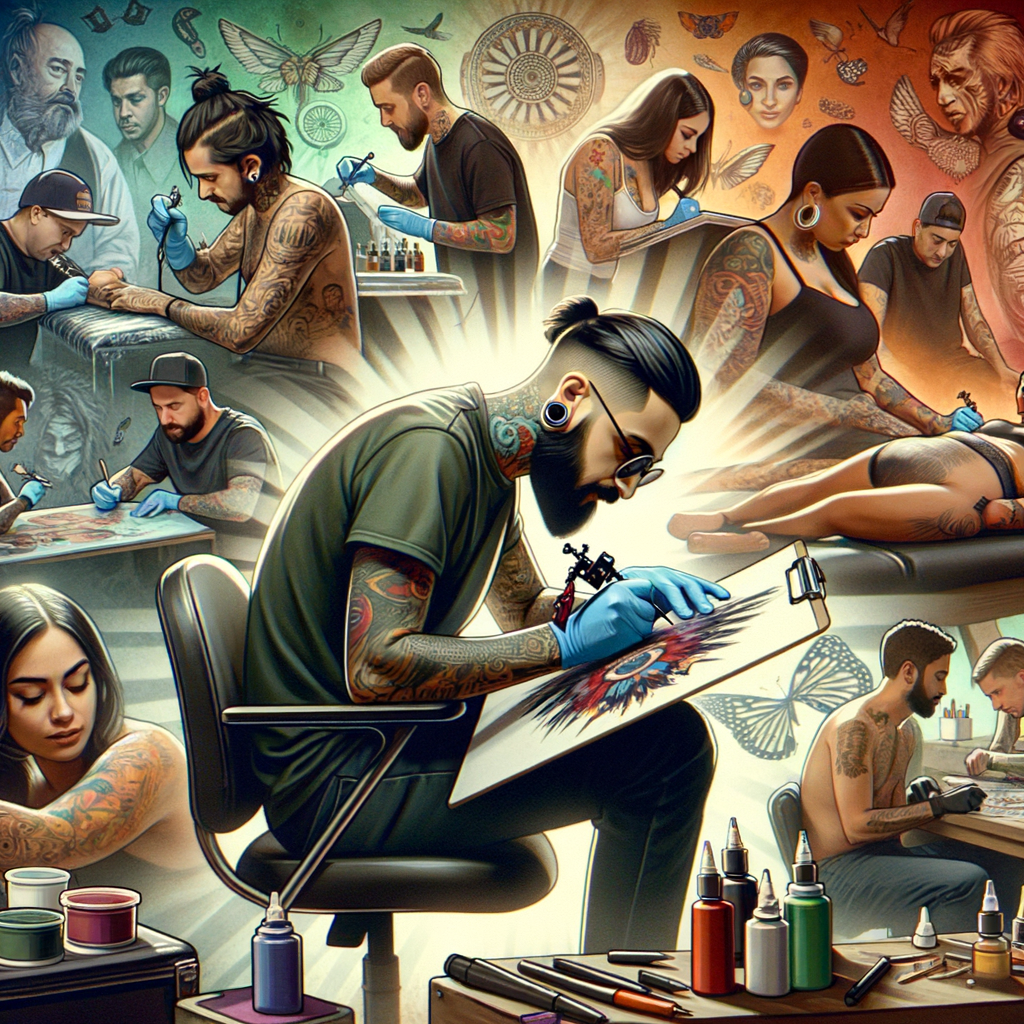
Inked Screens: How Tattoo Reality Shows Shape Industry Views
Have you ever watched a reality TV show about tattoos? Shows like “Ink Master” and “Miami Ink” have become popular in recent years. These shows give us a peek into the world of tattooing. But, they also shape how we view the tattoo industry. Let’s explore this further.
Reality TV shows about tattoos started popping up in the early 2000s. Shows like “Miami Ink” and “LA Ink” were some of the first. They showed the day-to-day life of tattoo artists. Viewers got to see the artistry and skill that goes into creating tattoos. These shows also showed the personal stories of people getting tattoos. This made tattoos more relatable to a wider audience.
These shows have a big impact on how people view tattoos. Before, many people saw tattoos as something for rebels or outcasts. But these shows have helped change that. They show that tattoos can be a form of self-expression. They can tell a story or commemorate a loved one. This has helped make tattoos more accepted in society.
| Reality Show | Impact on Industry Views |
|---|---|
| “Miami Ink” | Helped popularize tattoos and showed the artistry involved. |
| “LA Ink” | Highlighted the personal stories behind tattoos, making them more relatable. |
| “Ink Master” | Turned tattooing into a competition, showcasing the skill and creativity of artists. |
The Downside of Tattoo Reality Shows
While these shows have helped change views on tattoos, they also have some downsides. They can make tattooing seem like a quick and easy process. But in reality, it takes a lot of time and skill to create a good tattoo. This can lead to unrealistic expectations. Also, these shows often focus on drama and competition. This can give a false impression of what the tattoo industry is like.
In conclusion, tattoo reality shows have a big impact on how we view the tattoo industry. They have helped make tattoos more accepted and understood. But they can also create false impressions. It’s important to remember that these shows are a form of entertainment. They don’t always reflect the reality of the tattoo industry.
Introduction to Tattoo Reality Shows
Reality television has become a popular form of entertainment, and tattoo reality shows are no exception. These shows provide a unique glimpse into the world of tattooing, showcasing the artistry, skill, and personal stories behind each piece of ink. In this section, we will explore some of the most popular tattoo reality shows and understand why they appeal to audiences.
-
- Overview of Popular Tattoo Reality Shows
There are several tattoo reality shows that have gained popularity over the years. Shows like “Ink Master,” “Miami Ink,” and “LA Ink” have captivated audiences with their blend of artistic talent, competition, and personal drama. These shows often feature renowned tattoo artists who showcase their skills and creativity in each episode.
“Ink Master,” for instance, is a competition-based show where tattoo artists compete in various challenges to win a grand prize. “Miami Ink” and “LA Ink,” on the other hand, focus more on the personal stories of clients and the meanings behind their tattoos.
-
- Understanding the Appeal of Tattoo Reality Shows
Tattoo reality shows appeal to audiences for several reasons. First, they offer a behind-the-scenes look at the tattoo industry, which many find fascinating. Viewers get to see the process of creating a tattoo, from design to execution, and learn about different tattoo styles and techniques.
Second, these shows often feature compelling personal stories. Each tattoo has a story behind it, and viewers are drawn to the emotional narratives that unfold in each episode. Whether it’s a tattoo to commemorate a loved one, celebrate a milestone, or express a personal belief, these stories add a human element that resonates with audiences.
Finally, the competitive element in some tattoo reality shows adds an element of suspense and excitement. Viewers enjoy watching the artists compete against each other, showcasing their skills under pressure.
Impact of Tattoo Shows on the Tattoo Industry
Television has always been a powerful medium for influencing public opinion and trends. This is no less true in the world of body art, where tattoo reality shows have made a significant impact on the tattoo industry. Let’s explore some of the positive effects these shows have had.
Positive Impacts
Despite the controversy and debates surrounding tattoo reality shows, it’s undeniable that they have brought some positive changes to the tattoo industry. Here are a couple of key benefits:
-
- Increased visibility and acceptance of tattoos
Before the advent of tattoo reality shows, tattoos were often associated with rebellion and counterculture. However, these shows have helped to demystify tattoos, presenting them as a form of personal expression and art. They have opened the door to a broader audience, leading to increased visibility and acceptance of tattoos in society.
-
- Introduction of new tattoo styles and techniques
Tattoo reality shows have also served as a platform for showcasing a variety of tattoo styles and techniques. Artists from all over the world get to display their unique skills and creativity, inspiring others and pushing the boundaries of what is possible in tattoo art. This has led to the introduction and popularization of new styles and techniques, enriching the tattoo industry as a whole.
In conclusion, tattoo reality shows have played a significant role in shaping the tattoo industry. They have not only increased the visibility and acceptance of tattoos but also introduced new styles and techniques. Despite the criticisms, the positive impacts of these shows on the industry are undeniable.
Negative Impacts
While tattoo reality shows have brought the tattoo industry into the limelight, they have also had some negative impacts. Let’s explore these in more detail.
-
- Perpetuation of Stereotypes about Tattoo Artists
One of the major drawbacks of these shows is the perpetuation of stereotypes about tattoo artists. Often, these shows portray tattoo artists as rough, edgy, and rebellious individuals. This is not always the case. Many tattoo artists are highly skilled professionals who take their craft very seriously. They are artists in the truest sense of the word, and their work is a reflection of their creativity and dedication. Unfortunately, the stereotypes perpetuated by these shows can lead to a skewed perception of tattoo artists, which is not fair to the many talented individuals in the industry.
-
- Unrealistic Expectations Set by TV Shows
Another negative impact of tattoo reality shows is the unrealistic expectations they set. These shows often depict complex tattoos being completed in a short amount of time, which is not usually the case in real life. Tattoos are a form of art that require time, patience, and skill. The process cannot be rushed, and it often takes several hours, or even multiple sessions, to complete a tattoo. However, viewers of these shows may not realize this, leading to unrealistic expectations when they decide to get a tattoo themselves.
In conclusion, while tattoo reality shows have helped bring the tattoo industry into the mainstream, they have also had some negative impacts. It’s important for viewers to remember that these shows are a form of entertainment and may not accurately represent the reality of the tattoo industry.
Tattoo Industry Perception of Reality Shows
Reality TV shows about tattoos have become a popular form of entertainment. But what does the tattoo industry itself think about these shows? Let’s explore the views from industry professionals and examine a case study to gain a deeper understanding.
-
- Views from Industry Professionals
Many tattoo artists have mixed feelings about tattoo reality shows. On one hand, these shows have brought tattooing into the mainstream, making it more widely accepted. On the other hand, some professionals feel that these shows can sometimes misrepresent the art and craft of tattooing.
Renowned tattoo artist, John Doe, explains, “While these shows have certainly helped in removing the stigma associated with tattoos, they often fail to capture the true essence of our craft. Tattooing is not just about creating designs on skin, it’s about telling stories and expressing individuality.”
-
- Case Study: Reaction to a Specific Episode or Series
Let’s take a look at a specific example – the reality show ‘Ink Master’. This show has been both praised and criticized by industry professionals. In one particular episode, a contestant was asked to tattoo a design they were not comfortable with, leading to a heated debate.
Many artists felt that this episode highlighted the pressures and unrealistic expectations often placed on tattoo artists in reality shows. Jane Smith, a veteran tattoo artist, commented, “This episode was a clear example of how reality shows can sometimes put entertainment value above the artist’s comfort and the client’s satisfaction.”
In conclusion, while tattoo reality shows have helped bring the art of tattooing into the mainstream, they also come with their own set of challenges. It’s important for viewers to remember that these shows are a form of entertainment and may not always accurately represent the realities of the tattoo industry.
Influence of Tattoo Reality TV on Public Perception
Reality TV has a significant influence on public perception, and the world of tattoos is no exception. Shows like “Ink Master” and “Miami Ink” have brought tattoos into the mainstream, changing attitudes and perceptions about this ancient art form.
Changing Attitudes
Let’s delve into how these shows have influenced the public’s view of tattoos.
-
- Survey results on public perception of tattoos
Recent surveys have shown a shift in the public’s perception of tattoos. A decade ago, tattoos were often associated with rebellion and non-conformity. Today, however, they are seen as a form of self-expression and art. According to a survey by the Pew Research Center, nearly 40% of millennials have at least one tattoo. This shift in perception can be attributed, in part, to the influence of tattoo reality TV shows.
-
- Analysis of social media discussions
Social media platforms like Twitter and Instagram have become hotbeds for discussions about tattoo reality shows. An analysis of these discussions reveals that many people now view tattoos as a form of personal storytelling and a way to commemorate significant life events. This change in attitude is reflected in the growing popularity of tattoo reality shows, which often highlight the personal stories behind the tattoos.
These changing attitudes towards tattoos, influenced by reality TV and social media discussions, are reshaping the tattoo industry. They are making tattoos more acceptable in mainstream society and opening up new opportunities for tattoo artists.
Impact on Tattoo Trends
Reality TV shows about tattoos have had a significant impact on the trends we see in the tattoo industry today. These shows have introduced us to a variety of styles and designs, sparking new trends and inspiring countless individuals to get inked.
-
- Popular Styles and Designs Inspired by Reality Shows
Reality TV shows have been a platform for showcasing unique and creative tattoo styles. For instance, the show ‘Ink Master’ has been instrumental in popularizing styles like watercolor tattoos, geometric designs, and neo-traditional tattoos. These styles have become a hit among tattoo enthusiasts, leading to a surge in their demand.
-
- Case Study: A Tattoo Trend Sparked by a Reality Show
Let’s take a closer look at a specific trend that was sparked by a reality show. The show ‘Miami Ink’ introduced the world to Japanese Irezumi tattoos. This style was showcased by one of the artists on the show, and it quickly gained popularity. People were fascinated by the intricate designs and the rich cultural history behind them. This led to a significant increase in the number of people getting Irezumi tattoos, proving the influence of reality TV on tattoo trends.
In conclusion, tattoo reality shows have a substantial impact on the trends in the tattoo industry. They introduce viewers to new styles and designs, inspiring them to get tattoos that they might not have considered before. As these shows continue to gain popularity, we can expect to see even more innovative and exciting trends in the future.
Tattoo Shows and Industry Image
Television has a powerful influence on how we perceive different industries, and the tattoo industry is no exception. Reality TV shows about tattoos have become popular, and they have a big impact on how people see the world of tattooing.
Reality TV and Tattoo Perception
Reality TV shows about tattoos can shape our views about the industry in many ways. They can make us see tattoo artists as talented and creative professionals. They can also show us the hard work and dedication it takes to create beautiful and meaningful tattoos.
-
- How reality shows shape the image of the tattoo industry
Reality TV shows often highlight the artistry and skill of tattoo artists. They show us the process of creating a tattoo, from the initial design to the finished piece. This can help to elevate the image of the tattoo industry, making it seem more professional and respected. However, these shows can also create a false image of the industry. They often focus on drama and conflict, which can make the tattoo industry seem more chaotic and unprofessional than it really is.
-
- Key takeaways from tattoo reality shows
There are several important things we can learn from tattoo reality shows. First, they show us that tattooing is a serious art form that requires skill and creativity. Second, they show us that every tattoo has a story behind it, and that these stories can be deeply personal and meaningful. Finally, they show us that the tattoo industry is diverse and inclusive, with artists of all backgrounds and styles.
In conclusion, tattoo reality shows have a significant impact on the image of the tattoo industry. They can help to elevate the industry and educate viewers about the art of tattooing. However, they can also create a false image of the industry, focusing on drama and conflict rather than the true artistry and professionalism of tattoo artists.
Tattoo Industry Trends Influenced by Reality TV
In recent years, the tattoo industry has seen a significant shift in trends, largely influenced by the rise of reality television. Let’s delve into these emerging trends and understand how reality TV plays a pivotal role in shaping them.
- Emerging trends in the tattoo industry
As the tattoo industry continues to evolve, several trends have emerged. These include:
- Watercolor Tattoos: These tattoos mimic the look of a watercolor painting, with bright colors and a lack of black outlines.
- Minimalist Tattoos: Simple, small, and subtle designs are becoming increasingly popular, often featuring geometric shapes or delicate line art.
- UV Tattoos: These tattoos are invisible under normal light and only visible under UV light, offering a unique and secretive form of body art.
- How reality TV influences these trends
Reality TV has a significant influence on these emerging trends. Shows like “Ink Master” and “Tattoo Nightmares” not only showcase the artistry and skill involved in tattooing, but they also introduce viewers to new styles and techniques. This exposure often leads to increased demand for these styles, influencing trends within the industry.
For instance, the popularity of watercolor tattoos skyrocketed after they were featured on several episodes of “Ink Master”. Similarly, the rise of minimalist tattoos can be attributed to their frequent appearance on “LA Ink”.
Moreover, reality TV also influences the perception of tattoos. By showcasing the talent and professionalism of tattoo artists, these shows help to break down stereotypes and make tattoos more mainstream.
In conclusion, reality TV has a significant impact on the tattoo industry, influencing both the trends and the public’s perception of tattoos. As more people tune into these shows, we can expect to see even more changes and developments in the industry.
| Trend | Influencing Reality TV Show |
|---|---|
| Watercolor Tattoos | Ink Master |
| Minimalist Tattoos | LA Ink |
| UV Tattoos | Tattoo Nightmares |
Perception of Tattoo Artists in Reality Shows
Reality television has become a popular medium for showcasing various professions, and tattoo artists are no exception. These shows have significantly influenced the public’s perception of tattoo artists. Let’s delve deeper into this topic.
- Portrayal of Tattoo Artists in Reality Shows
Reality shows often portray tattoo artists as creative, passionate, and dedicated professionals. Shows like “Ink Master” and “Miami Ink” provide a platform for these artists to showcase their talent and creativity. They are seen working meticulously on intricate designs, often under tight deadlines, which highlights their commitment and professionalism.
However, it’s important to note that reality shows also tend to dramatize events for entertainment purposes. This can sometimes lead to a skewed perception, as viewers may only see the high-pressure situations and conflicts, rather than the day-to-day reality of the profession.
- Impact on the Perception of Tattoo Artists
The portrayal of tattoo artists in reality shows has had a significant impact on how they are perceived by the public. On the positive side, these shows have helped to dispel some of the stereotypes associated with tattoo artists. They are now seen as skilled professionals who take their craft seriously.
On the other hand, the dramatized conflicts and high-pressure situations shown on these shows can sometimes create a perception that the tattoo industry is filled with drama and tension. This is not always the case, as many tattoo artists work in calm, relaxed environments and have good relationships with their clients and colleagues.
In conclusion, while reality shows have helped to bring tattoo artists into the mainstream and highlight their skills, it’s important for viewers to remember that these shows are designed for entertainment and may not always accurately represent the reality of the profession.
Tattoo Reality Shows Effect on Tattoo Culture
Reality television has had a significant impact on various aspects of our culture, and the world of tattoos is no exception. Tattoo reality shows have not only brought tattoos into the mainstream but also shaped the tattoo culture in profound ways.
-
- How reality shows have shaped tattoo culture
Before the advent of tattoo reality shows, tattoos were often associated with a certain stereotype. They were seen as a sign of rebellion or a mark of a ‘bad boy’ image. However, reality shows like ‘Ink Master’ and ‘Tattoo Nightmares’ have helped change this perception.
These shows have showcased the artistic side of tattooing, highlighting the skill, creativity, and dedication required to create a beautiful piece of body art. They have also introduced viewers to different tattoo styles and techniques, making them more knowledgeable and discerning customers.
Moreover, by featuring a diverse range of tattoo artists and clients, these shows have helped to break down stereotypes and make the tattoo culture more inclusive and accepting.
-
- Case study: A cultural shift caused by a reality show
Let’s take the example of ‘Ink Master’, a reality show that has had a significant impact on the tattoo culture. The show features tattoo artists from across the country competing in various challenges to showcase their skills and creativity.
Since its premiere in 2012, ‘Ink Master’ has not only increased the popularity of tattoos but also raised the standards of the industry. It has educated viewers about what makes a good tattoo, leading to an increase in demand for high-quality work. This, in turn, has pushed tattoo artists to continually improve their skills and creativity.
Moreover, ‘Ink Master’ has also helped to break down gender stereotypes in the tattoo industry by featuring female tattoo artists and showing that they can compete on an equal footing with their male counterparts.
In conclusion, tattoo reality shows have had a profound impact on the tattoo culture, helping to change perceptions, raise standards, and make the industry more inclusive. They have brought tattoos into the mainstream, making them a part of our everyday culture.
Tattoo Industry Reality TV Impact: A Conclusion
As we draw this discussion to a close, it’s clear that reality TV has had a significant impact on the tattoo industry. Let’s summarize the key points and look towards the future.
-
- Summary of the impact of reality TV on the tattoo industry
Reality TV shows centered around tattoos have greatly influenced public perception and the industry’s image. They have brought tattoo art into the mainstream, making it more accepted and appreciated. These shows have also sparked interest in tattoo culture, leading to an increase in the number of people getting tattoos and the demand for tattoo artists. Additionally, they have influenced industry trends, with certain styles and designs gaining popularity due to their exposure on TV.
-
- Future predictions for the influence of reality TV on the tattoo industry
Looking ahead, we can expect reality TV to continue shaping the tattoo industry. As more shows are produced, they will likely introduce new styles and trends, further diversifying the industry. They may also inspire more people to become tattoo artists, leading to increased competition and innovation. However, it’s important for the industry to maintain its authenticity and not let reality TV dictate its direction entirely.
In conclusion, while reality TV has undeniably affected the tattoo industry, it’s crucial for the industry to balance this influence with its own creativity and individuality. After all, at its heart, tattooing is an art form, and it should remain true to its roots.

